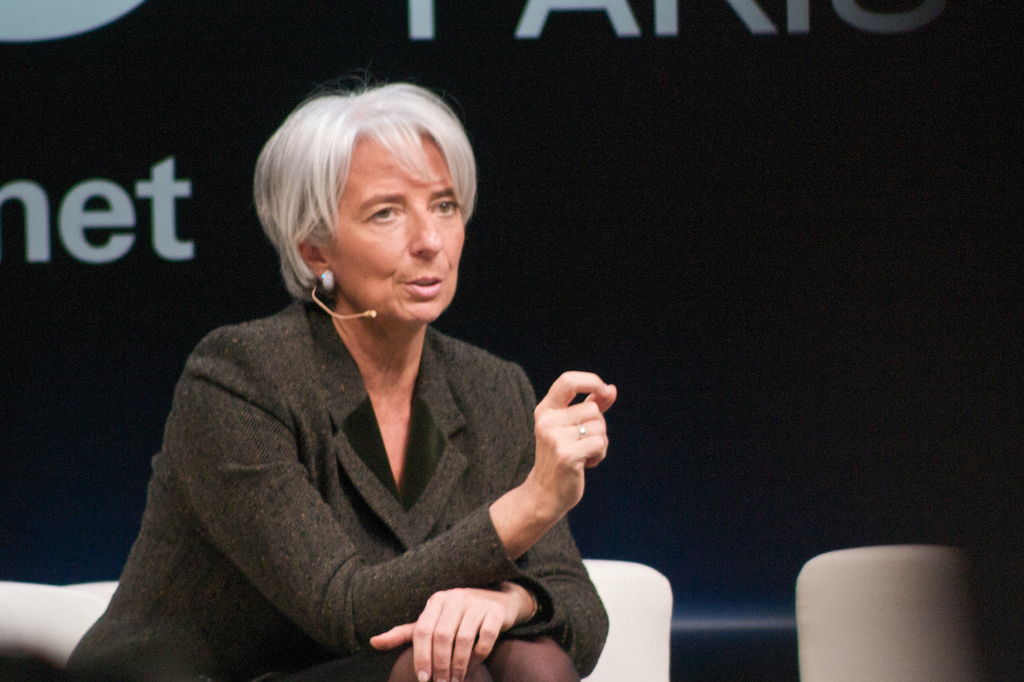Speaking in Berlin, Lagarde welcomed the "steady and widespread rise" in the global economy.
At the same time, she pointed to the strong factors threatening growth, such as the growth of populism and protectionism.
In order for the Eurozone to prepare for the next economic downturn, the IMF head urged the bloc members to develop a modernized union of capital markets, an improved banking union and move towards greater fiscal integration.
Mrs. Lagarde proposed to create a "rainy-day fund", in which members of the Eurozone would annually make contributions, accumulating assets in good times. Later, during the economic downturn, they could use the money from this fund.
In emergency situations, countries can borrow funds and repay their loans through future contributions, she said.
The transfer of funds may depend on how much the countries adhere to EU fiscal rules. Lagarde also recommended that countries pay a premium in good times, depending on the payments they received in bad times.
As for the alliance of capital markets, the head of the IMF called for more regulation and improved oversight mechanisms to cope with the potential inflow of financial services companies to continental Europe after Brexit.
According to Eurostat, the GDP of 19 Eurozone countries in the IV quarter of 2017 increased by 0.6% compared to the previous quarter. The growth was fixed for the 19th quarter in a row.
As a result of 2017, the euro area's GDP increased by 2.3% in general. This is the maximum growth rate since 2007.
In February, the European Commission increased the forecast for GDP growth in the Eurozone for 2018 from 2.1% expected in November to 2.3%. The forecast for 2019 is increased from 1.9% to 2%.
"This is the result of a stronger cyclical momentum in Europe, where labor markets continue to improve, and economic sentiment is particularly high, and stronger than expected global economic growth and trade," the European Commission said.
"The downside risks associated with the uncertain outcome of the Brexit talks remain, as well as the risks associated with geopolitical tensions and a shift towards more protectionist policies," warned the EC.
source: reuters.com
At the same time, she pointed to the strong factors threatening growth, such as the growth of populism and protectionism.
In order for the Eurozone to prepare for the next economic downturn, the IMF head urged the bloc members to develop a modernized union of capital markets, an improved banking union and move towards greater fiscal integration.
Mrs. Lagarde proposed to create a "rainy-day fund", in which members of the Eurozone would annually make contributions, accumulating assets in good times. Later, during the economic downturn, they could use the money from this fund.
In emergency situations, countries can borrow funds and repay their loans through future contributions, she said.
The transfer of funds may depend on how much the countries adhere to EU fiscal rules. Lagarde also recommended that countries pay a premium in good times, depending on the payments they received in bad times.
As for the alliance of capital markets, the head of the IMF called for more regulation and improved oversight mechanisms to cope with the potential inflow of financial services companies to continental Europe after Brexit.
According to Eurostat, the GDP of 19 Eurozone countries in the IV quarter of 2017 increased by 0.6% compared to the previous quarter. The growth was fixed for the 19th quarter in a row.
As a result of 2017, the euro area's GDP increased by 2.3% in general. This is the maximum growth rate since 2007.
In February, the European Commission increased the forecast for GDP growth in the Eurozone for 2018 from 2.1% expected in November to 2.3%. The forecast for 2019 is increased from 1.9% to 2%.
"This is the result of a stronger cyclical momentum in Europe, where labor markets continue to improve, and economic sentiment is particularly high, and stronger than expected global economic growth and trade," the European Commission said.
"The downside risks associated with the uncertain outcome of the Brexit talks remain, as well as the risks associated with geopolitical tensions and a shift towards more protectionist policies," warned the EC.
source: reuters.com





